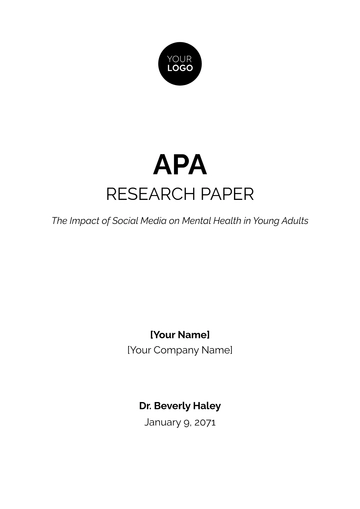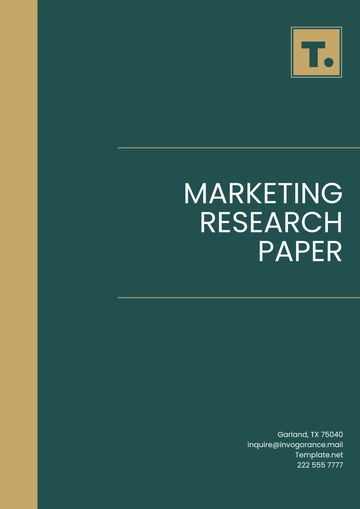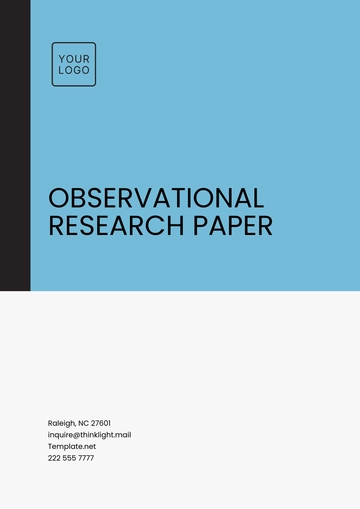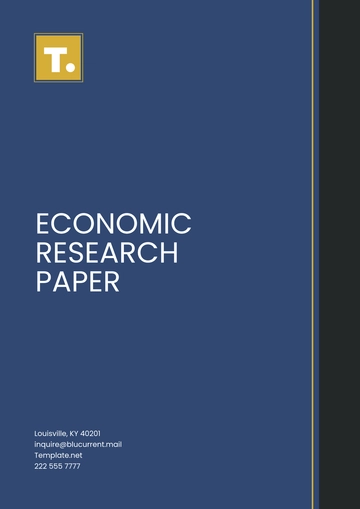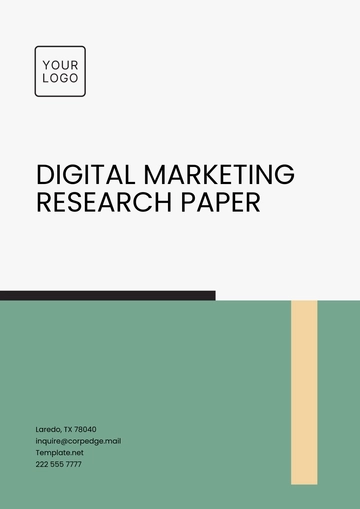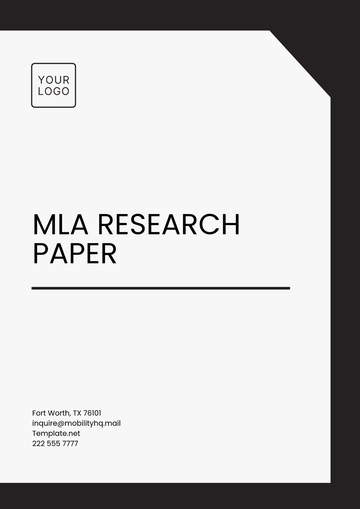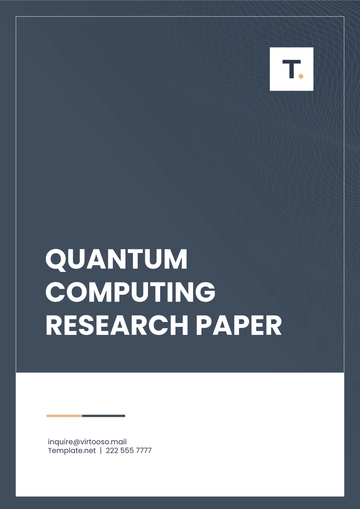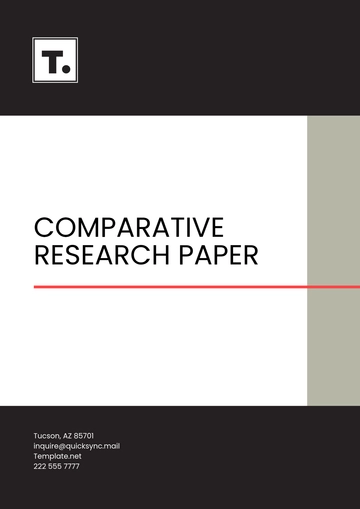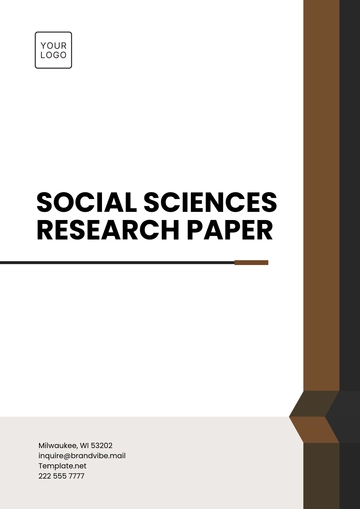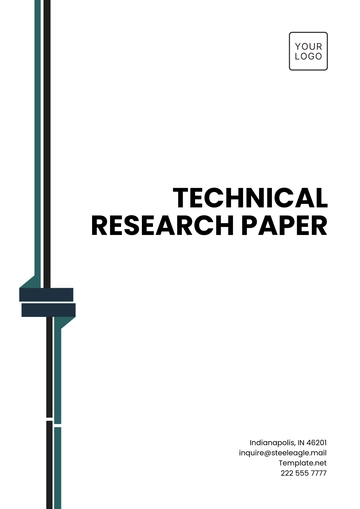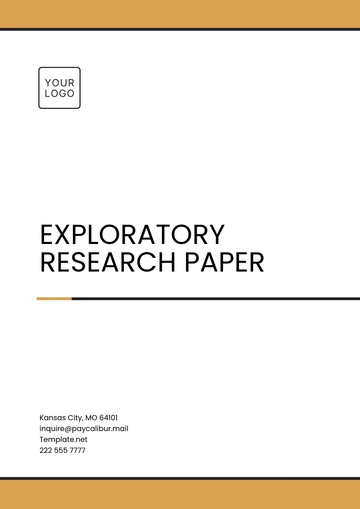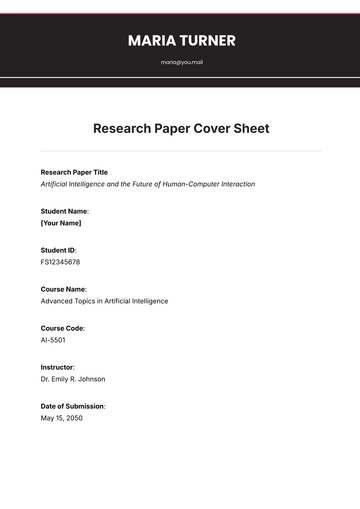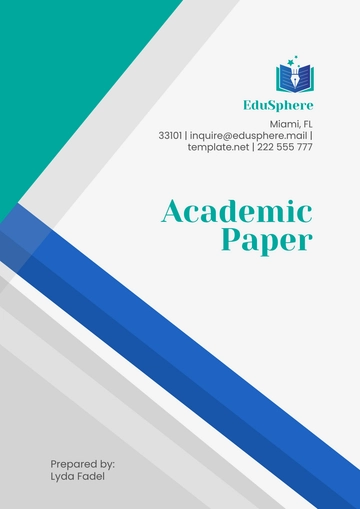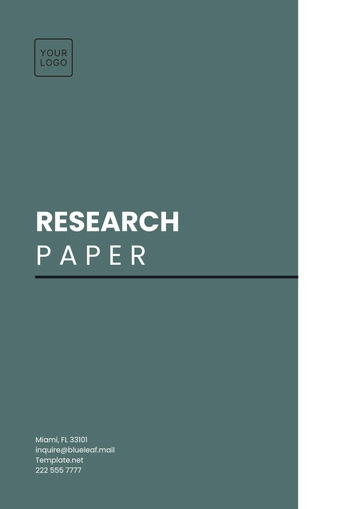Free Technology Impact Research Paper
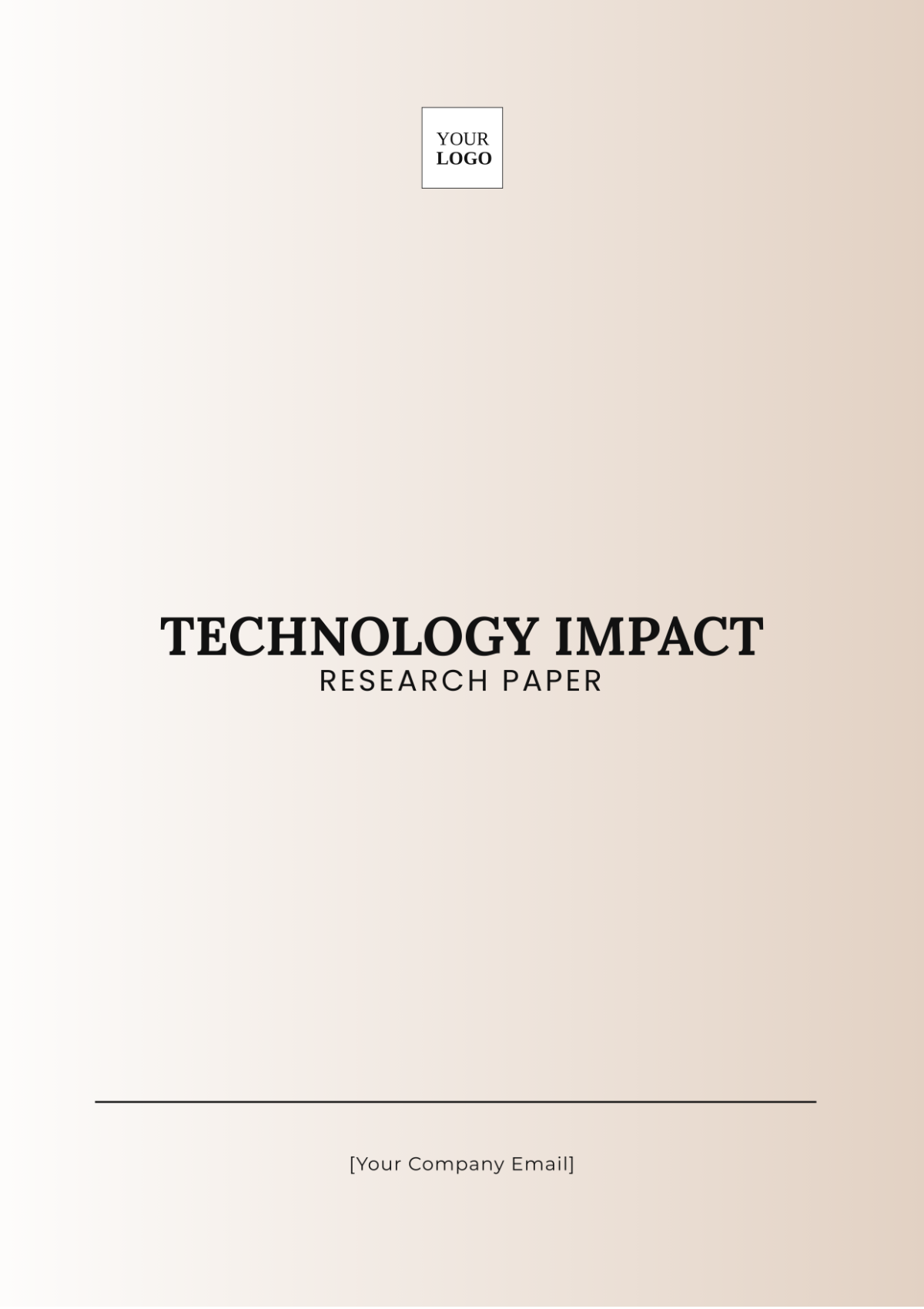
Researcher: [Your Name]
Date: [Date]
I. Abstract
This research paper explores the profound effects and wide-ranging implications of technological advancements across various sectors, including society, the economy, and the environment. By examining both the positive and negative influences of new technologies, this paper delves into how these advancements shape human behavior, business processes, and global trends. The study aims to provide a comprehensive understanding of the multifaceted impacts of technology and offers insights into future directions of technological development.
II. Introduction
Technological advancements have become a driving force in today's world, affecting nearly every aspect of our lives. From the rapid expansion of the internet and mobile devices to the rise of artificial intelligence and renewable energy technologies, the influence of technological progress is pervasive. This paper aims to analyze the various effects of these advancements on different sectors, focusing on how they alter societal behaviors, business operations, and environmental outcomes.
III. Literature Review
The literature on technological impacts is vast and varied, providing numerous perspectives on how new technologies influence different sectors. Key areas of focus include:
Technology and Society: Examines how digital transformation affects communication, work, education, and privacy.
Economic Impacts: Analyzes how technology drives economic growth, disrupts industries, and creates new job opportunities.
Environmental Effects: Discusses the environmental costs and benefits of technological innovations.
Behavioral Changes: Looks at how technology alters consumer behavior and lifestyle choices.
Previous studies have highlighted both the opportunities and challenges presented by rapid technological change, suggesting that while technology can drive progress, it also necessitates careful management to mitigate potential negative impacts.
IV. Methodology
This study employs a mixed-methods approach to analyze the effects of technological advancements. The methodology includes:
Data Collection: Gathering data from secondary sources such as academic journals, industry reports, and government publications.
Qualitative Analysis: Conducting interviews with experts and stakeholders to gain insights into specific technological impacts.
Quantitative Analysis: Using statistical tools to analyze numerical data related to technological adoption and its outcomes.
V. Results
The analysis reveals several key findings:
Societal Impact: Technology has significantly enhanced connectivity and access to information, leading to behavioral shifts such as increased remote work and online education.
Economic Impact: Technological advancements have driven economic growth, particularly in the tech sector, while also causing disruptions in traditional industries.
Environmental Impact: The use of renewable energy technologies has reduced carbon footprints, but the production and disposal of electronic devices have contributed to environmental degradation.
Behavioral Impact: Consumers have increasingly adopted e-commerce and social media platforms, changing purchasing behaviors and social interactions.
VI. Discussion
The discussion section delves deeper into the implications of the study's findings. It considers the balance between the benefits and drawbacks of technological advancements, emphasizing the need for thoughtful regulation and sustainable practices. The paper also discusses potential future trends, such as the growth of artificial intelligence and the Internet of Things, and their likely impact on society and the economy.
VII. Conclusion
This research paper concludes that while technological advancements offer significant opportunities for progress and innovation, their impacts are multifaceted and require careful consideration. Policymakers, business leaders, and society must work together to harness the benefits of technology while addressing its challenges. Future research should continue to explore the evolving relationship between technology and various sectors to ensure sustainable and equitable development.
VIII. References
Smith, J.J. (2050). The Evolution of Digital Communication. Journal of Technology Impact, 45(2), 123-145. https://doi.org/10.1000/jti.2050.0123
Doe, M.M. (2051). Advancements in Artificial Intelligence: A Comprehensive Review. TechFuture Publishing.
Johnson, L.L. (2052). Environmental Impacts of Renewable Energy Technologies. GreenTech Research Institute. https://www.greentechri.org/publications/2052/renewable-energy
- 100% Customizable, free editor
- Access 1 Million+ Templates, photo’s & graphics
- Download or share as a template
- Click and replace photos, graphics, text, backgrounds
- Resize, crop, AI write & more
- Access advanced editor
Explore the future of technology with Template.net's Technology Impact Research Paper Template. Fully customizable and editable, this template is designed to help you present your research on technological advancements effectively. Editable in our Ai Editor Tool, it offers the flexibility to tailor every detail, ensuring your paper stands out in both content and design.



